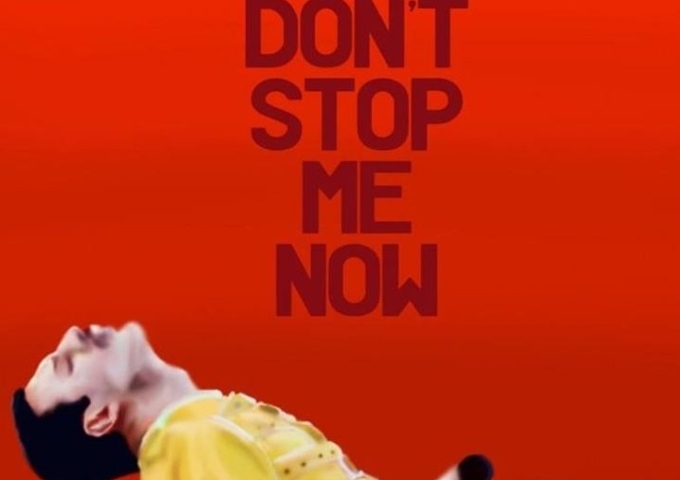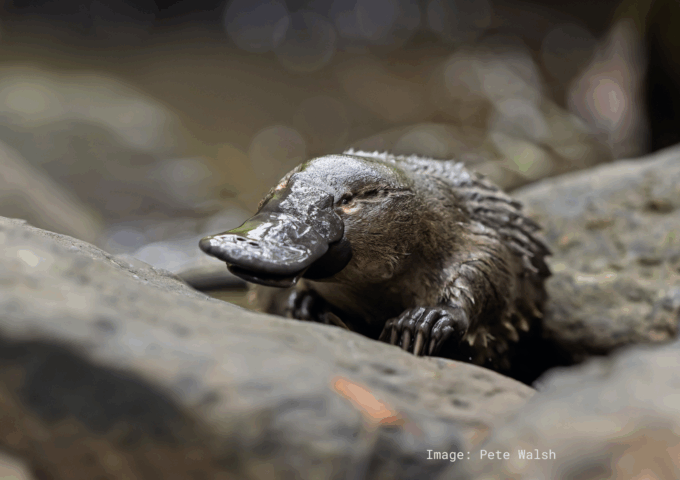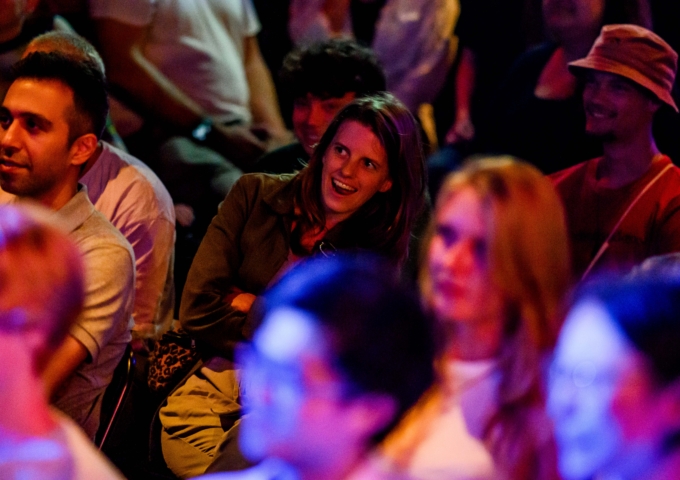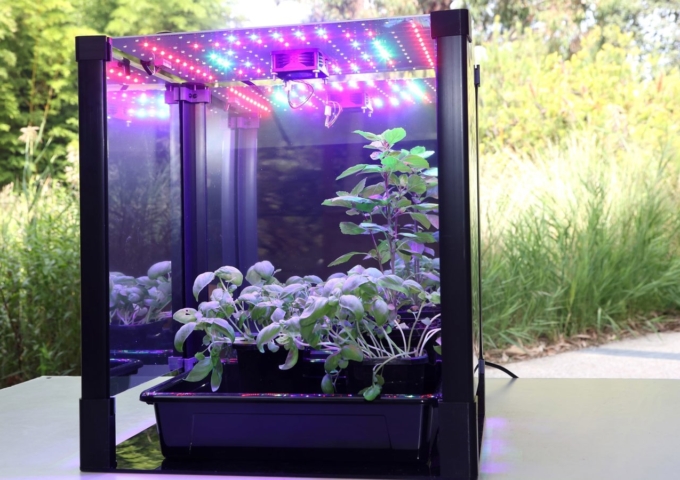
National Science Week in Victoria takes a theme of ‘Grow’, exploring how animals, plants, people and careers develop, and more.
Below is a selection of highlight events to give you a taste of the science smorgasbord on offer. Alternatively, use the search engine to find more events in Victoria.
Science Gallery Melbourne: Artists find meaning in digital distraction: in Parkville throughout National Science Week and beyond
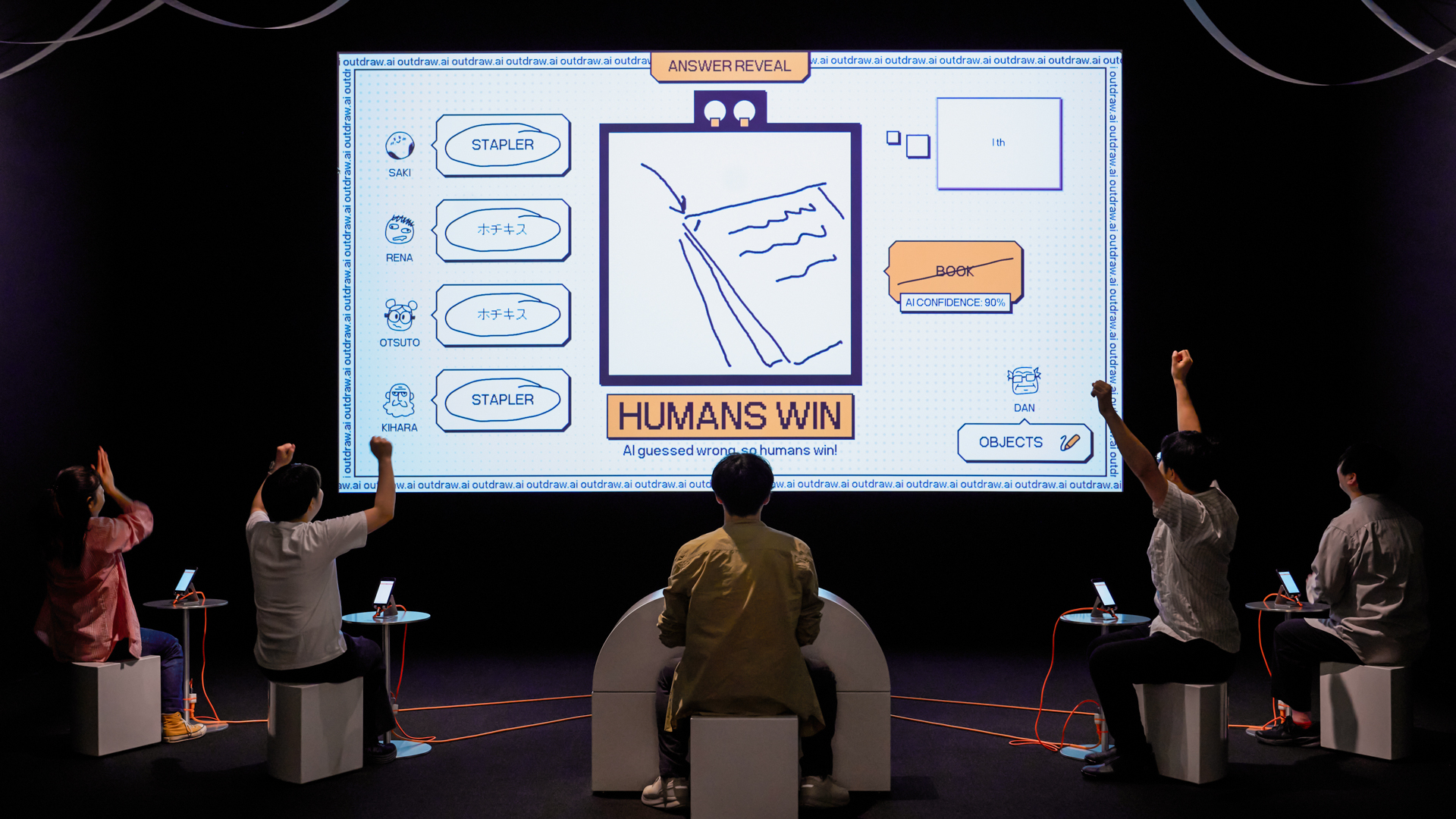 See how Japanese cats respond to videos of their own image on ‘Cat Island’.
See how Japanese cats respond to videos of their own image on ‘Cat Island’.
Outsmart AI in ‘Deviation Game’, drawing things that only humans understand.
Join a comedic televised set, ‘Pledge Drive for Attention’.
University of Melbourne’s Science Gallery explores how we can ‘harness the cacophony of digital content and find meaning within it’ through interactive games, play and technology in its free ‘DISTRACTION’ exhibition.
The Science of Despicable Me 2: Wednesday 13 August in Melbourne
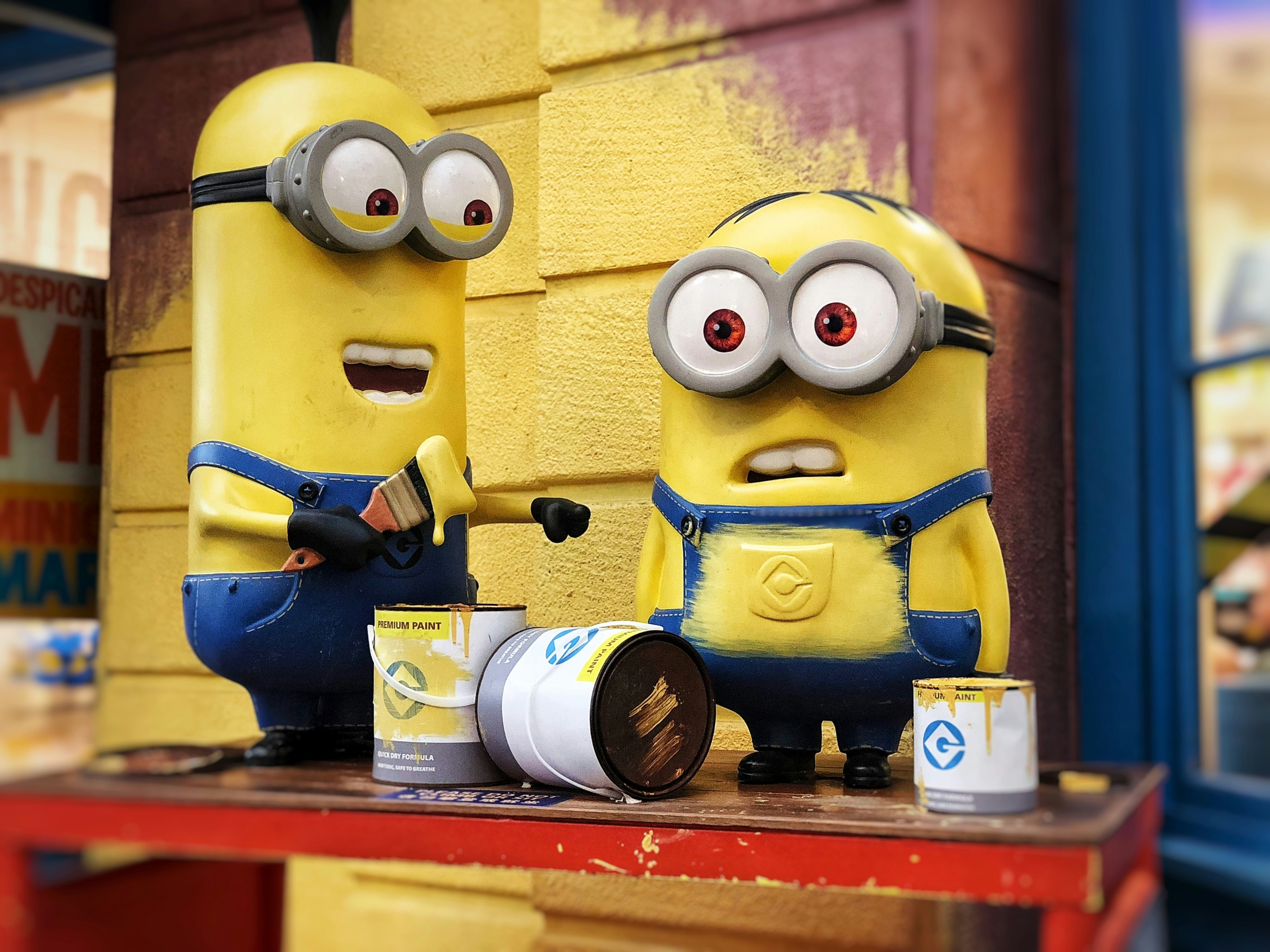 Melbourne scientists are using Despicable Me 2 to explore the physics of everyday life.
Melbourne scientists are using Despicable Me 2 to explore the physics of everyday life.
They’re inviting the public to a special screening of the movie, followed by a Q&A with scientists from the RMIT Centre for Applied Quantum Technologies.
They explain principles like motion, energy and forces, illustrated by the Minions’ interactions with the world around them.
The Science of Attention: How nature can help: Thursday 14 August in North Fitzroy
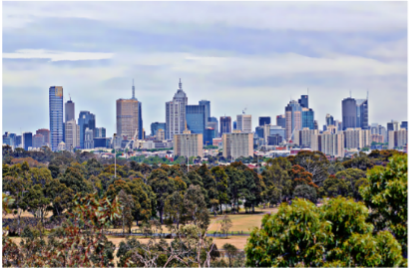 Melbourne researchers say looking to nature can improve your attention span.
Melbourne researchers say looking to nature can improve your attention span.
University of Melbourne Psychology Professor Katherine Johnson discusses related findings about staying focussed.
Her research in the field of developmental cognitive neuroscience involves children and adults with developmental disorders including attention deficit hyperactivity disorder (ADHD) and autism spectrum disorder (ASD).
Career Snapshots – Oh, the places you’ll go! Thursday 14 August at the Royal Society of Victoria in Melbourne
 “You have brains in your head, You have feet in your shoes, You can steer yourself any direction you choose.” – Dr. Seuss
“You have brains in your head, You have feet in your shoes, You can steer yourself any direction you choose.” – Dr. Seuss
The transition from university into the workforce is rarely straightforward. The advice is scattered, the options feel endless, and LinkedIn doesn’t always tell the full story. This event aims to cut through the noise by sharing honest, relatable stories from emerging scientists who have, and still are, navigating this complex landscape themselves.
People will hear from early-career scientists working across research, industry, and innovation. They’ll share how they got started, what their day-to-day looks like, and what they wish they’d known earlier.
Quantum Horizons: From Brainwaves to Time Crystals: Friday 15 August in Hawthorn
 Quantum physics governs the tiniest parts of our universe—atoms, light, and more. Though invisible, it powers breakthroughs in medicine, computing, and our understanding of reality. This National Science Week, explore the strange world of quantum with Swinburne experts—from brain research to time crystals.
Quantum physics governs the tiniest parts of our universe—atoms, light, and more. Though invisible, it powers breakthroughs in medicine, computing, and our understanding of reality. This National Science Week, explore the strange world of quantum with Swinburne experts—from brain research to time crystals.
Growing the Future: Saturday 16 and Sunday 17 August at Scienceworks in Spotswood
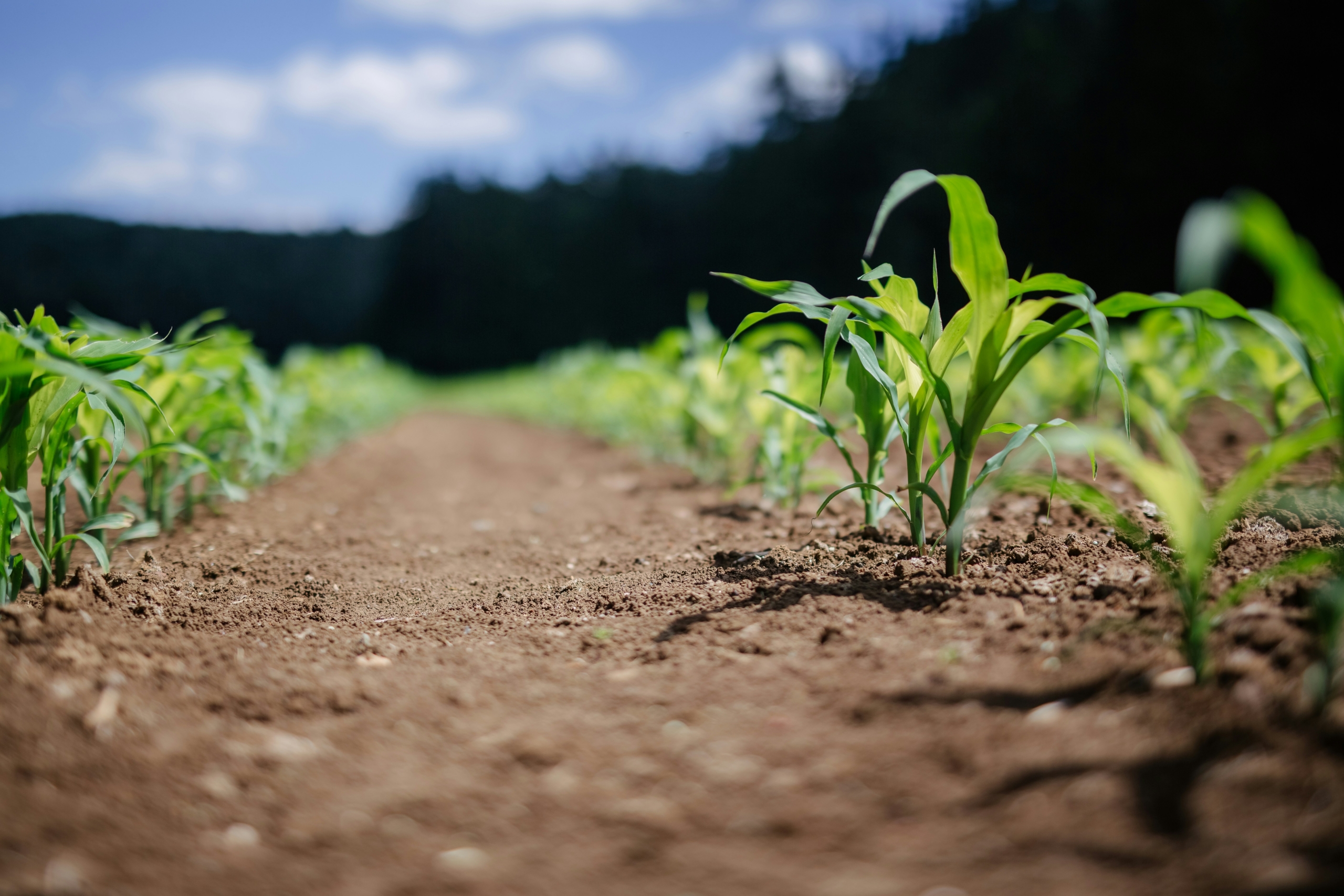 Plant seeds for the future inside the geodesic dome in the Scienceworks Arena with the ARC Centre of Excellence and Plants for Space.
Plant seeds for the future inside the geodesic dome in the Scienceworks Arena with the ARC Centre of Excellence and Plants for Space.
Explore how plants will grow in the environments of tomorrow – from cutting-edge hydroponics to growing food in space. Discover the science behind space agriculture and create your own one-of-a-kind hydroponic mini garden to decorate and take home.
From Antarctic lichens to the oldest hornworts: Von Mueller’s 1.5 million specimens across time: Thursday 14 August at Melbourne’s Royal Botanic Gardens
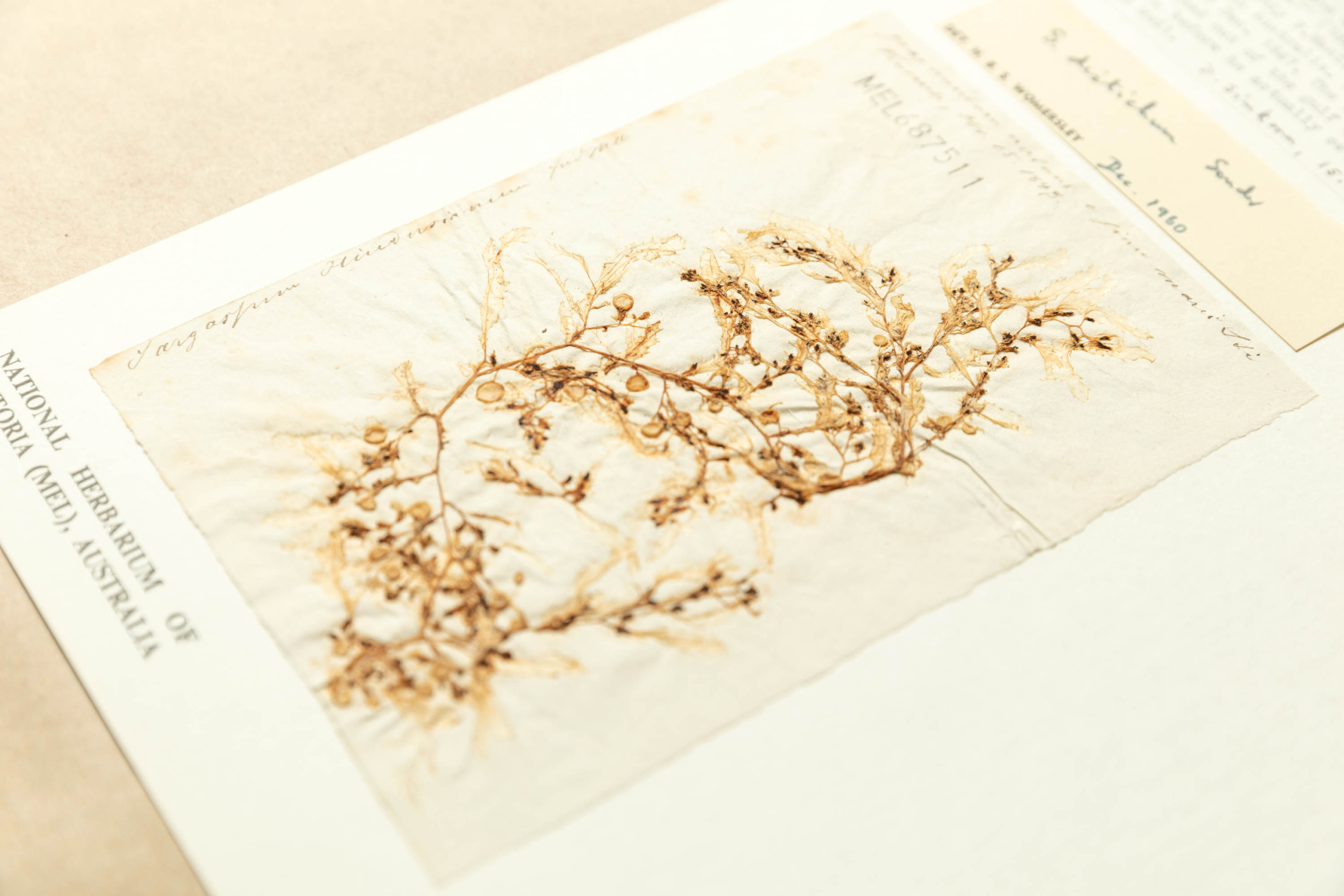 How can lichen survive the Antarctic landscape while also growing in the hottest deserts?
How can lichen survive the Antarctic landscape while also growing in the hottest deserts?
Scientists from Royal Botanic Gardens Victoria will tell their favourite stories about some of the 1.5 million specimens of plants, algae, and fungi at the National Herbarium of Victoria.
Learn about the founder of the herbarium, Baron Ferdinand von Mueller, on his 200th birthday and discover how these historic collections continue to inform science today.
Flora, Fauna and TIGRR: The past and future of biology: Thursday 14 August in Parkville
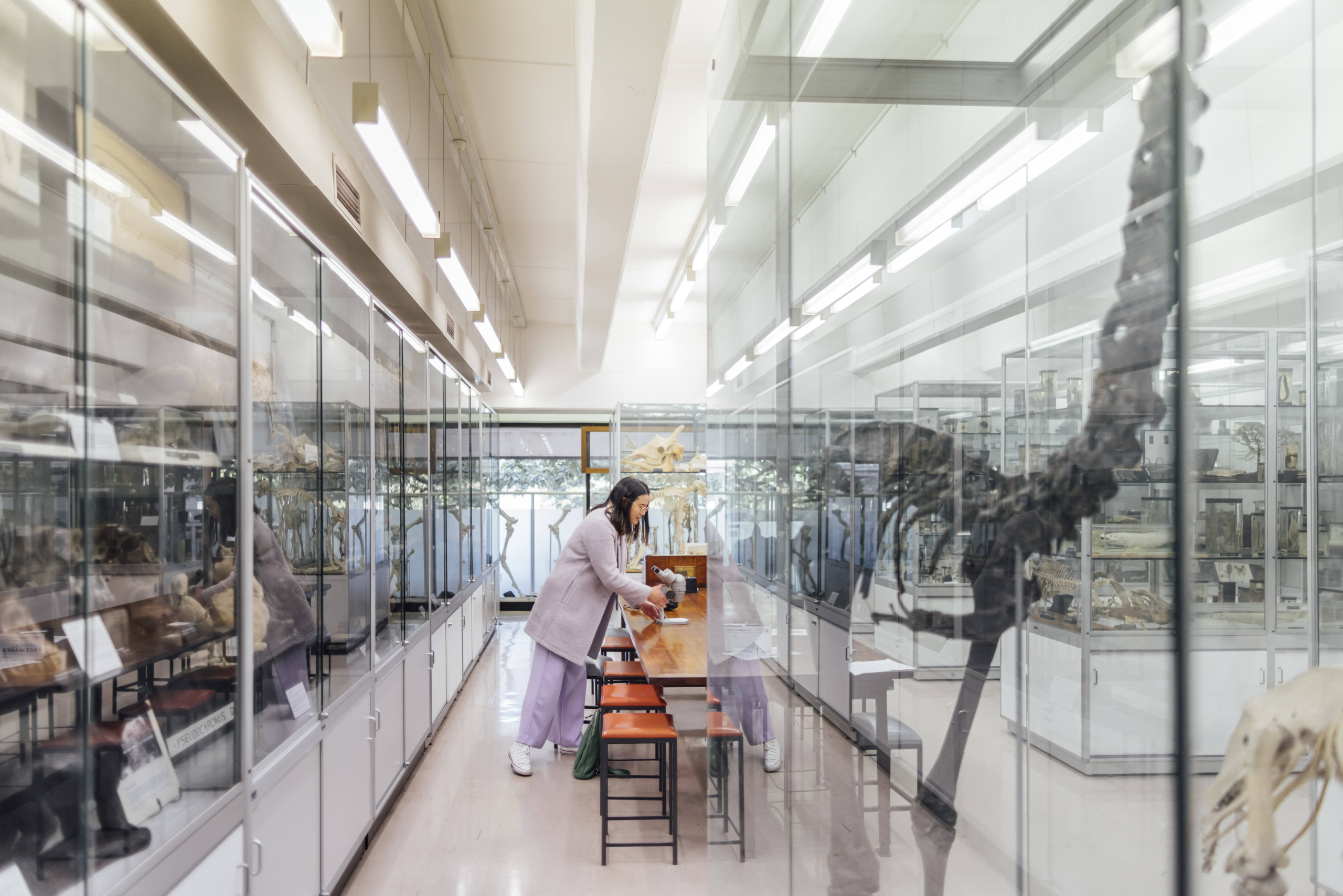 Melburnians have the rare opportunity to step inside labs and museums normally off limits to the public at the University of Melbourne’s Parkville campus, including the Herbarium, the Tiegs Museum and Thylacine Integrated Genomic Restoration Research Lab.
Melburnians have the rare opportunity to step inside labs and museums normally off limits to the public at the University of Melbourne’s Parkville campus, including the Herbarium, the Tiegs Museum and Thylacine Integrated Genomic Restoration Research Lab.
Discover plant specimens collected by Captain Cook’s crew, a chimpanzee skeleton signed by Dr Jane Goodall, and pioneering efforts in marsupial conservation and de-extinction of the Tasmanian tiger.
The Secret History of Sharks: Friday 15 August in Ballarat
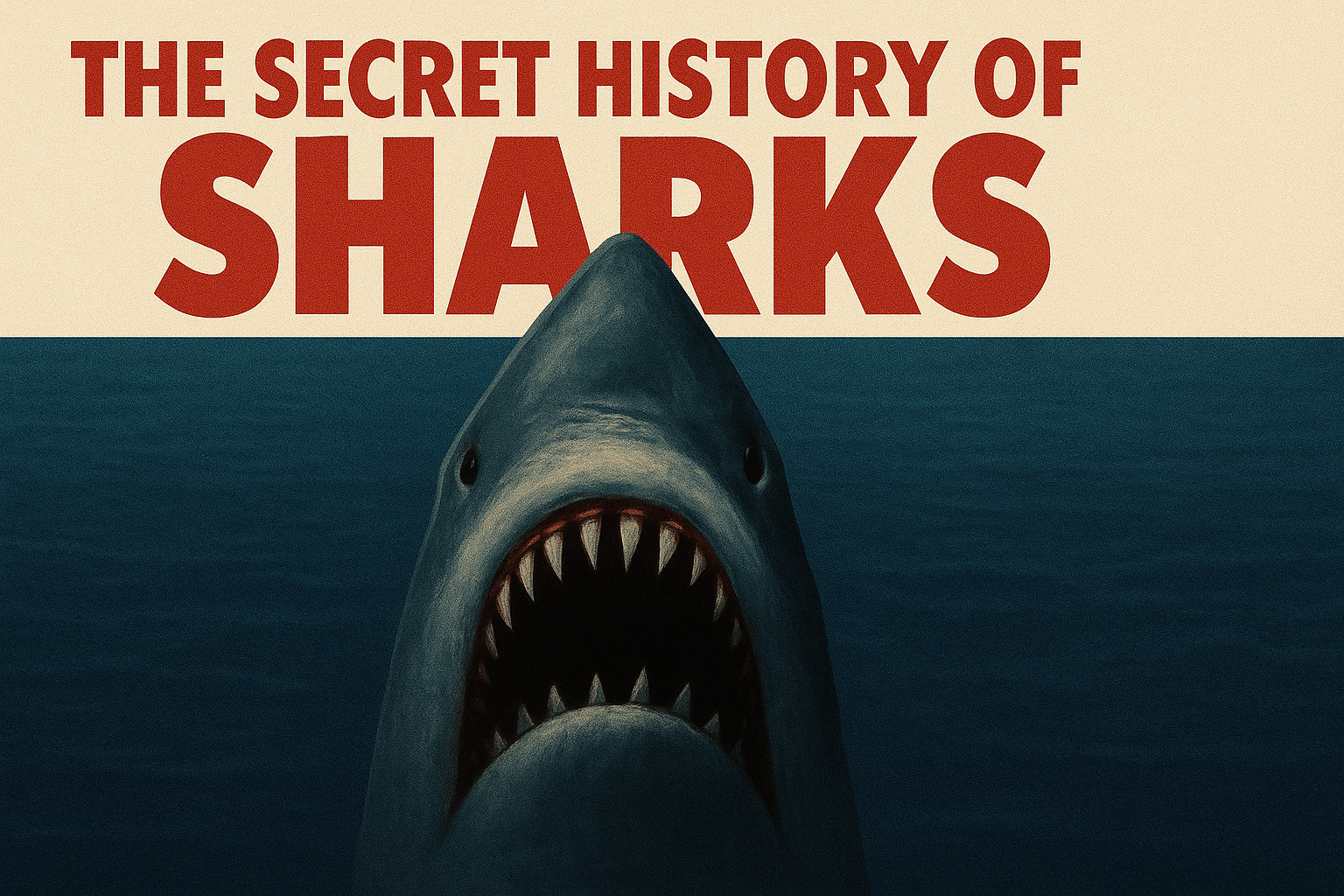 A 30-foot shark with a saw blade of jagged teeth protruding from its lower jaws. Sharks fossilised during mating. And new insights into the megalodon, the largest shark that ever lived, measuring 66 feet.
A 30-foot shark with a saw blade of jagged teeth protruding from its lower jaws. Sharks fossilised during mating. And new insights into the megalodon, the largest shark that ever lived, measuring 66 feet.
Flinders University palaeontologist Professor John Long reveals how sharks have outlasted multiple mass extinction events to remain at the top of the ocean’s food chain. The author of The Secret History of Sharks: The Rise of the Ocean’s Most Fearsome Predators will also showcase ancient fossils, including a megalodon tooth.
Big Microcosmos – A science-art exhibition of the gut-immune-brain axis: Friday 8 August – Friday 15 August in Melbourne
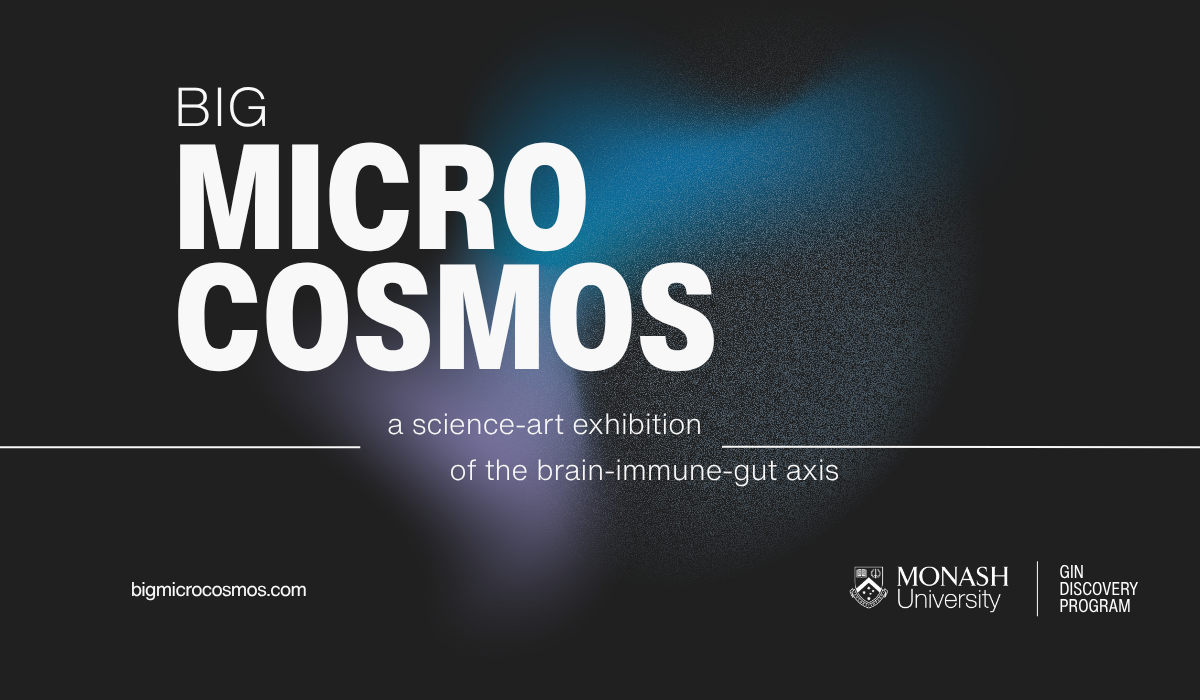 Some 90 per cent of chronic health conditions are influenced by how cells and neurons communicate across our gastrointestinal, immune and nervous systems.
Some 90 per cent of chronic health conditions are influenced by how cells and neurons communicate across our gastrointestinal, immune and nervous systems.
Researchers from Monash University’s Gastroenterology, Immunology and Neuroscience (GIN) program have captured the gut-immune-brain axis in stunning imagery, as documented in the curation of a free public exhibition ‘Big Microcosmos’.
Their research focuses on gastrointestinal, immune and nervous systems as one interconnected system, recognising that single organ/system investigation often falls short in addressing complexities of widespread health issues from allergies to diabetes, cardiovascular disease, cancer and neurological conditions (autism spectrum disorders, chronic pain, Alzheimer’s and Parkinson’s disease).
CSI: eDNA – solving eco-crimes with environmental DNA: Friday 15 August – Sunday 17 August in Brunswick
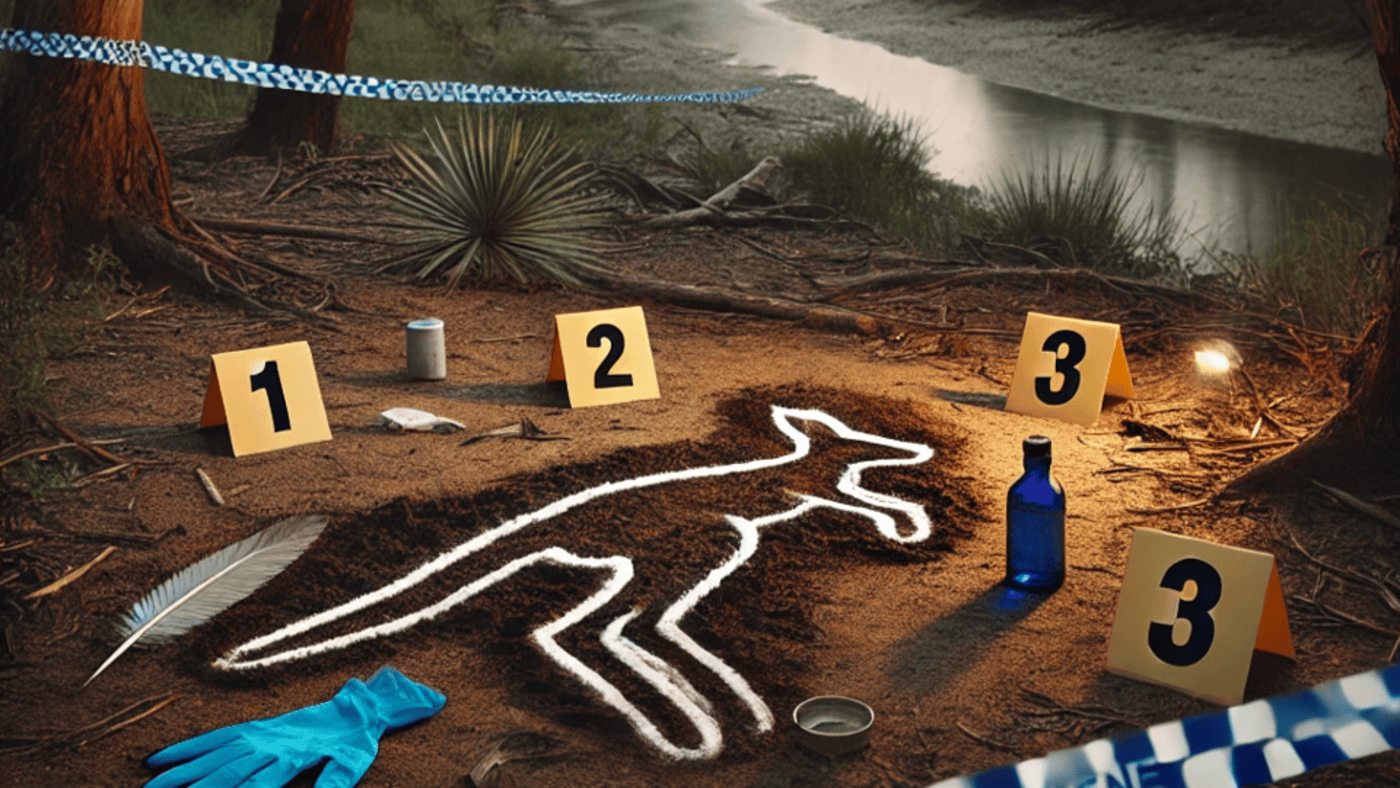 Think David Attenborough meets CSI: Crime Scene Investigation. Don your lab coat, safety goggles and gloves and help a team of scientists solve eco-crimes by collecting and analysing environmental DNA (eDNA).
Think David Attenborough meets CSI: Crime Scene Investigation. Don your lab coat, safety goggles and gloves and help a team of scientists solve eco-crimes by collecting and analysing environmental DNA (eDNA).
Step into a mock crime scene full of physical evidence, environmental samples and contextual clues that need to be deciphered. The eco-crime could relate to water pollution, endangered species trafficking, biodiversity loss, climate change or deforestation.
Learn how to collect environmental samples from water, soil and air, avoiding crime scene contamination with scientists including ‘eDNA Detective’ Mariea Pacheco (applied field ecologist), and ‘FungiGirl’ Ema Corro (mycologist). Then, conduct eDNA extraction and analysis using the world’s first portable DNA laboratory, the ‘Bento Lab’, before crunching genetic data and using DNA barcoding.
Jurassic Wonders: Meet roving dinosaurs, dig for fossils and explore Land and Sky Country: Saturday 16 August in Bendigo
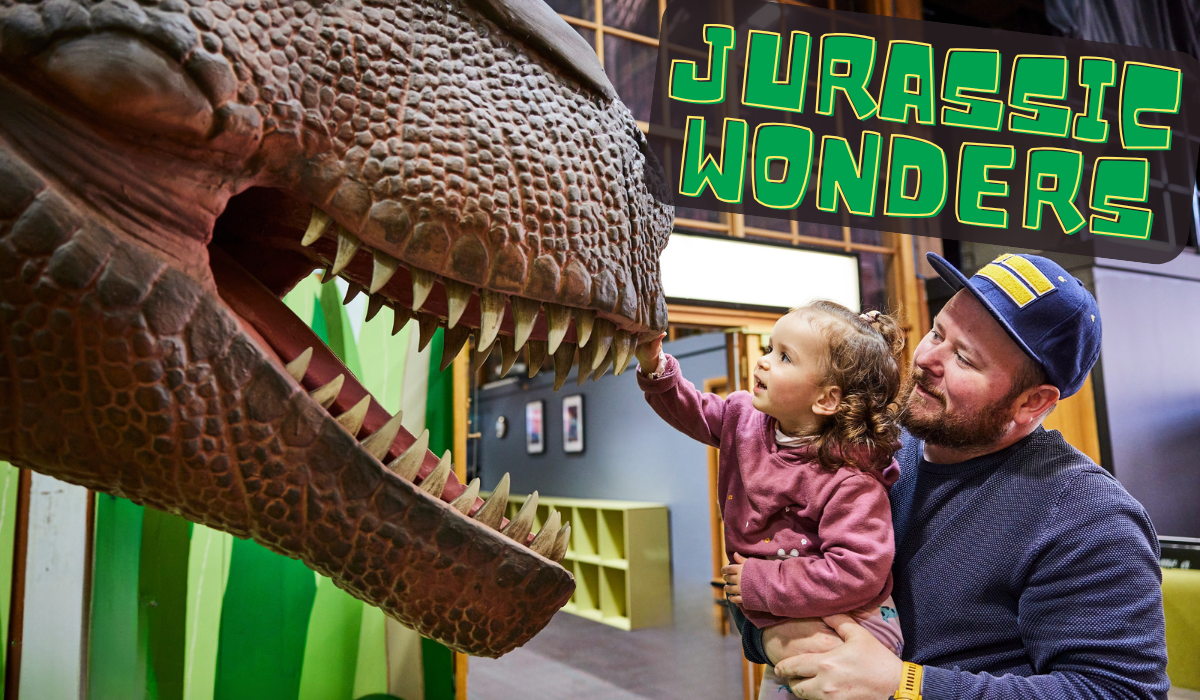 ‘Jurassic Wonders: From Earth to Sky’ celebrates First Nations Knowledge, palaeontology and astronomy by teaching children the importance of cross-cultural understanding and engagement to understand the Universe.
‘Jurassic Wonders: From Earth to Sky’ celebrates First Nations Knowledge, palaeontology and astronomy by teaching children the importance of cross-cultural understanding and engagement to understand the Universe.
Designed for children aged 3 to 11, the event at Bendigo’s Discovery Science and Technology Centre features ‘life-sized roving dinosaurs that stomp, roar and interact with the crowd’, cultural storytelling and a planetarium show focused on Indigenous archaeology. It also includes Auslan interpretation for children with low or no hearing.
Empowering Health Through Science and Technology: Thursday 14 August in Bundoora
Wearable health technology and apps have been around since the mid-2000s. But what’s the science behind them, and why should you care?
Find out in workshops, talks and demonstrations. The program showcases how innovative technologies can reduce health disparities and improve access to preventative care. It includes stories from people in places like regional Australia, Nepal, India, and Africa, showing how technology is helping their communities stay healthy.
The project will foster healthier lifestyle practices by equipping participants with the knowledge and resources to utilise health technologies effectively.
Smart Health Global Australia is a not-for-profit organisation based in Melbourne and Nepal with an aim to act as a catalytic driver to promote easy access to quality health in hard-to-reach areas.




